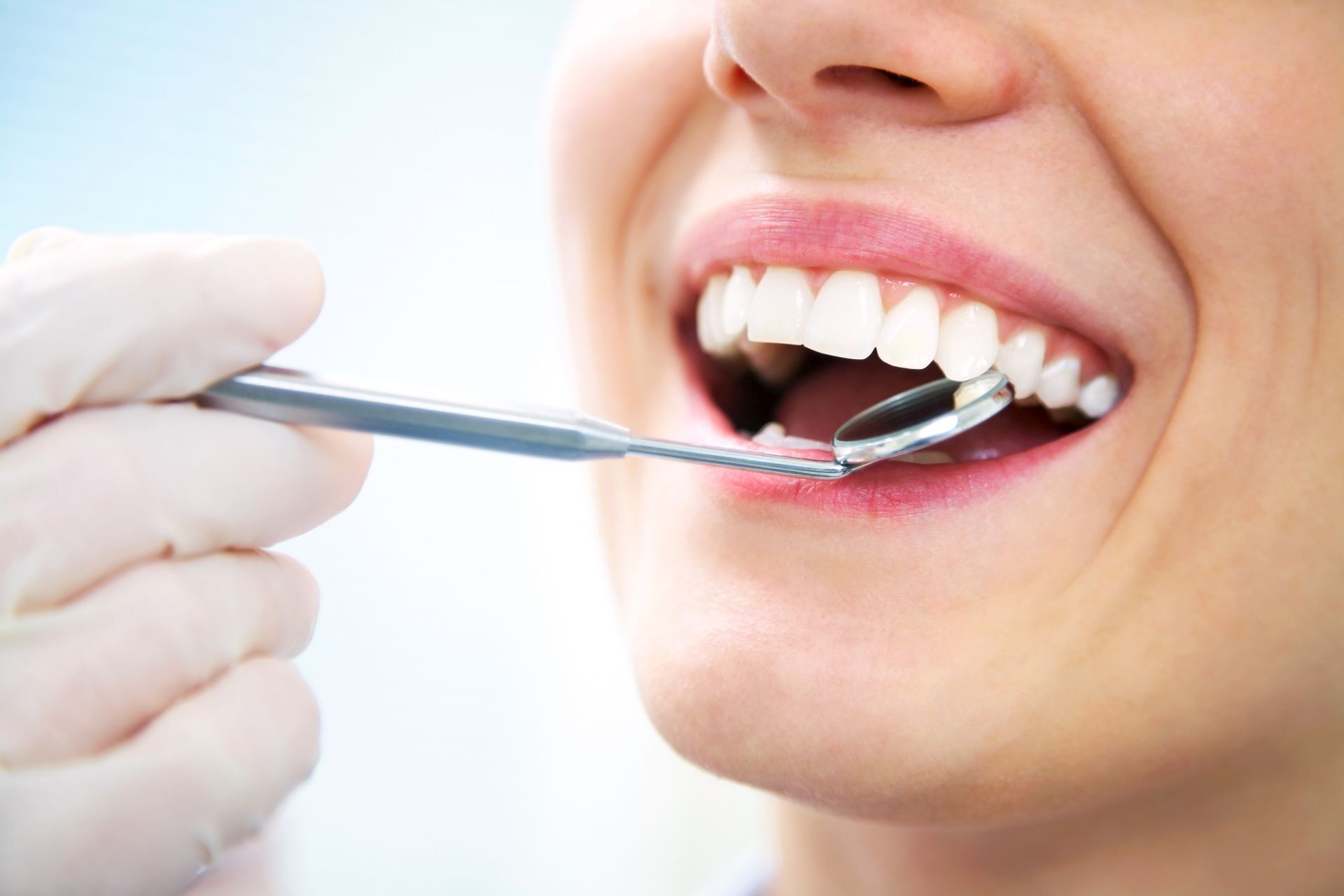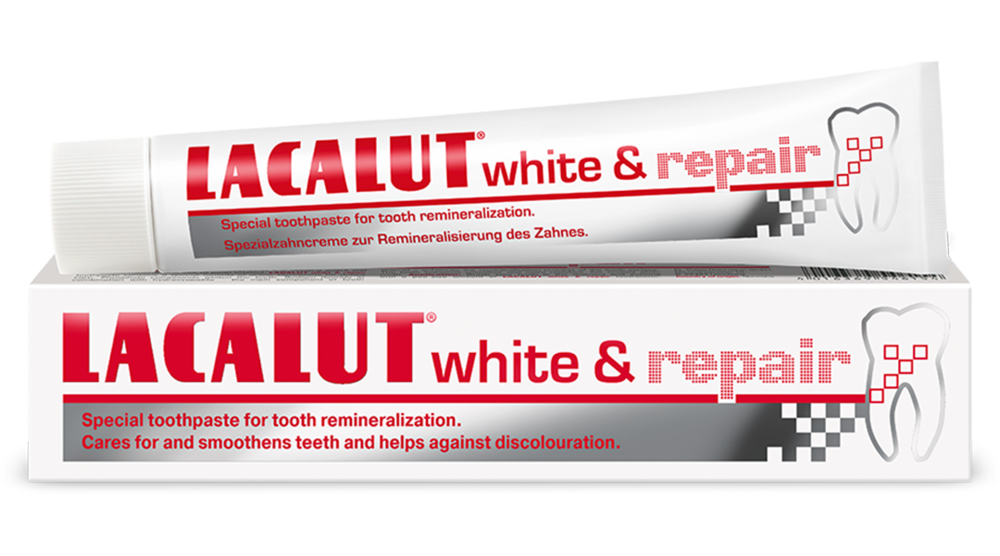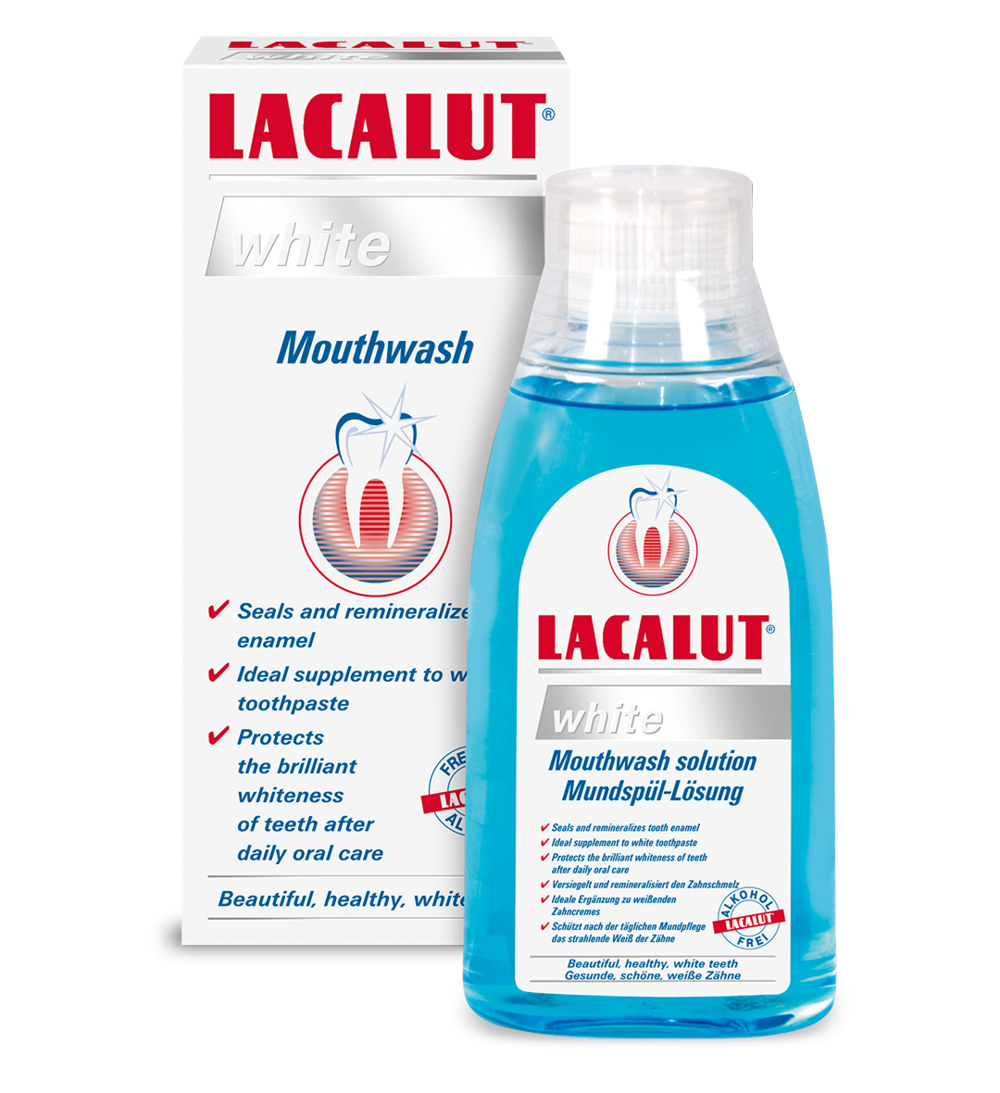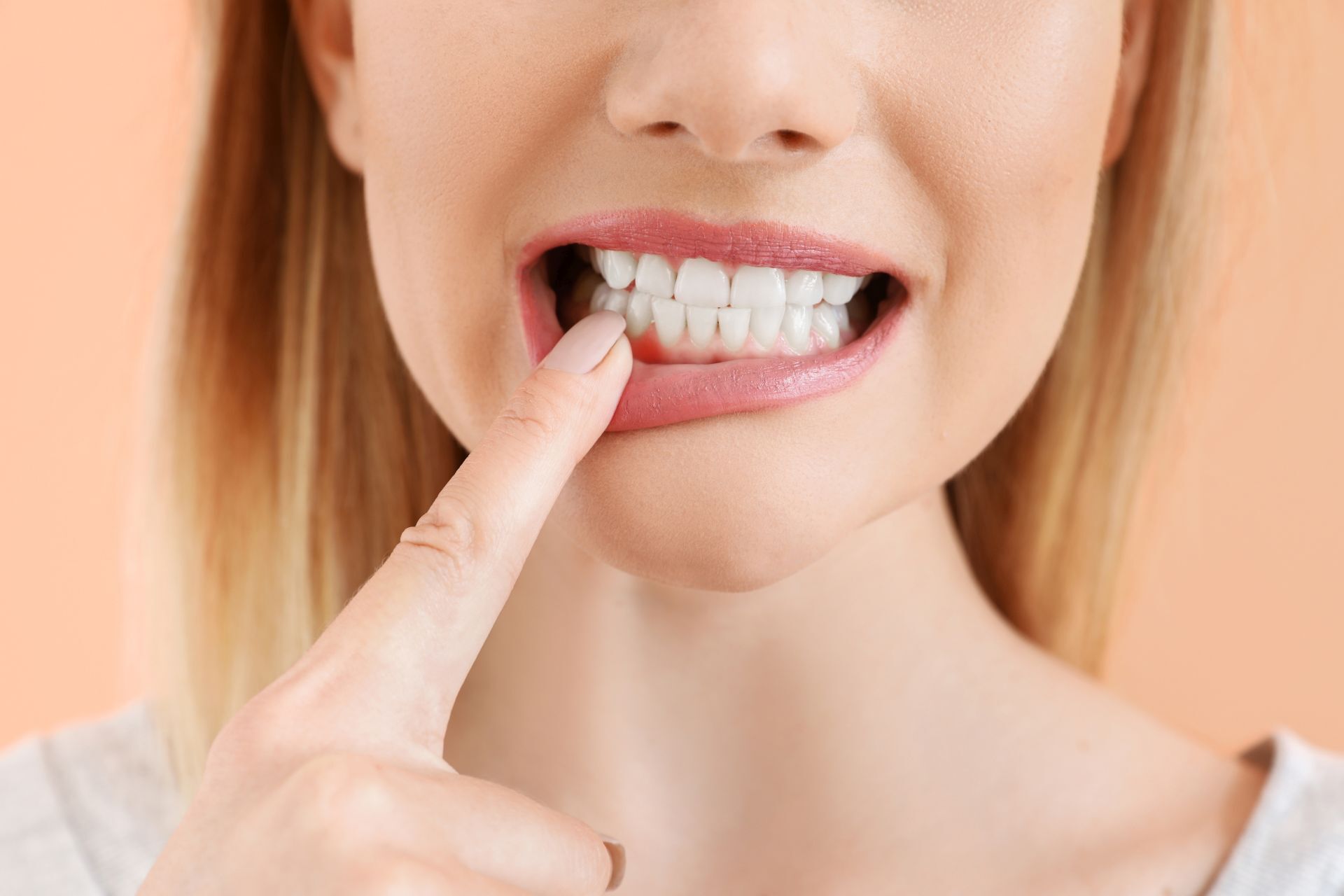If it hurts, it is usually already too late. Because severe toothache means: there is a hole in the tooth, and the nerves are already affected, perhaps even the root. At that stage, the damage is already so great that only a more or less complex treatment can help, and the very substance of the tooth is involved from the start: parts of the tooth are irretrievably lost and need to be repaired.
Effective prophylaxis begins at home
The problem: the first sign of damage to the teeth is neither visible nor tangible, with the exception of tartar. The hard, rough deposits on the edges of the teeth, especially in older people also on exposed tooth necks, are clearly visible. When plaque and the acids it contains have already attacked the enamel or the gums have become inflamed, this often goes unnoticed. The tooth enamel, the teeth’s outer layer, gradually becomes porous, but enamel cannot be replicated by the body. The good news is: that as long as the damage is still only superficial, the enamel can be rebalanced and strengthened – with regular prophylaxis. The preventive measures that are taken are diverse and constantly evolving.
Use fluoride toothpaste to clean your teeth and strengthen the tooth enamel
Most people understand prophylaxis to mean going to a checkup once or twice a year, combined with professional tooth cleaning (PTC). But prophylaxis begins much earlier, namely at home. There are many options available nowadays: in addition to toothbrushes, interdental brushes for the spaces between the teeth and tongue scrapers, there are also special medical toothpastes that contain fluoride, such as LACALUT® active toothpaste, which strengthen the tooth enamel and thus protect it against tooth decay. Enamel is softened and destabilised by acidic foods and sweet drinks such as fizzy drinks or fruit juices. There are also various mouthwashes that can and should be used in your daily oral hygiene.
Professional prophylaxis in the dental practice
In an ideal world, we would consume no sugary foods, hardly any fruit juices and brush our teeth or at least rinse our mouths thoroughly after every meal. However, most of us don't manage that and so a visit to the dentist can at least prevent the worst and uncover problems before they turn into actual dental and periodontal diseases. This is how it’s done:
- First, the teeth are freed from plaque and tartar. For this purpose, hand instruments such as scalers and curettes as well as airflow and ultrasonic devices are used. Dental floss, interdental brushes and scrapers also serve a purpose during a professional tooth cleaning to ensure that deposits are removed thoroughly and that hard-to-reach areas and the edges of teeth are cleaned
- cosmetically, too, a lot is possible when cleaning your teeth: the use of a powder jet device helps to remove discolourations on the teeth that are caused by coffee or tea
- a water jet is then used to thoroughly rinse all interdental spaces, and the teeth are then dried with air
- now that the teeth are properly clean, the tooth surfaces are polished using a special polishing paste. Any tooth necks that are already exposed as well as fine cracks are sealed, so the tooth substance is protected from bacteria
- finally, a fluoride gel offers the best protection against tooth decay. It is applied once the teeth have been polished to prevent the rapid reformation of plaque deposits, as it is more difficult for plaque to form on smooth tooth surfaces:da der Belag sich auf glatten Zahnoberflächen schwerer anlagert
Prophylaxis is a long-term project and must be repeated
However, “prevention” doesn't mean that plaque and tartar won't come back. PTC is only useful if it is carried out repeatedly at intervals. The main aim is to prevent tooth decay and gingivitis. This is achieved by reducing the bacterial load in the mouth. What many people don’t know: diet also plays a major role in maintaining healthy teeth. While acids and sugar damage teeth because they “feed” harmful bacteria and destroy tooth enamel; raw foods, i.e. raw vegetables, promote salivation when chewed. This is important because the teeth are rinsed by the saliva and harmful bacteria and germs are removed in the process. A dry mouth, on the other hand, promotes their multiplication and accumulation on the teeth and in the often narrow spaces between the teeth.
The bacteria found in the mouth can become dangerous
First and foremost, professional prophylaxis offers major advantages. In addition to protection against tooth decay and periodontal disease (an inflammation of the entire periodontium, with receding gums and the degradation of the jawbone up to tooth loss), it also leads to the mineralisation and smoothing of the teeth and contributes to a healthy oral flora. After PTC, the teeth look radiant, brighter and smoother again, and people with braces and dentures in particular should book an appointment for a prophylactic treatment at least twice a year, since bridges and crowns will last significantly longer if they are professionally cleaned and checked. Negligence can allow bacteria to build up again in the small gaps and, in a worst-case scenario, to penetrate the teeth.
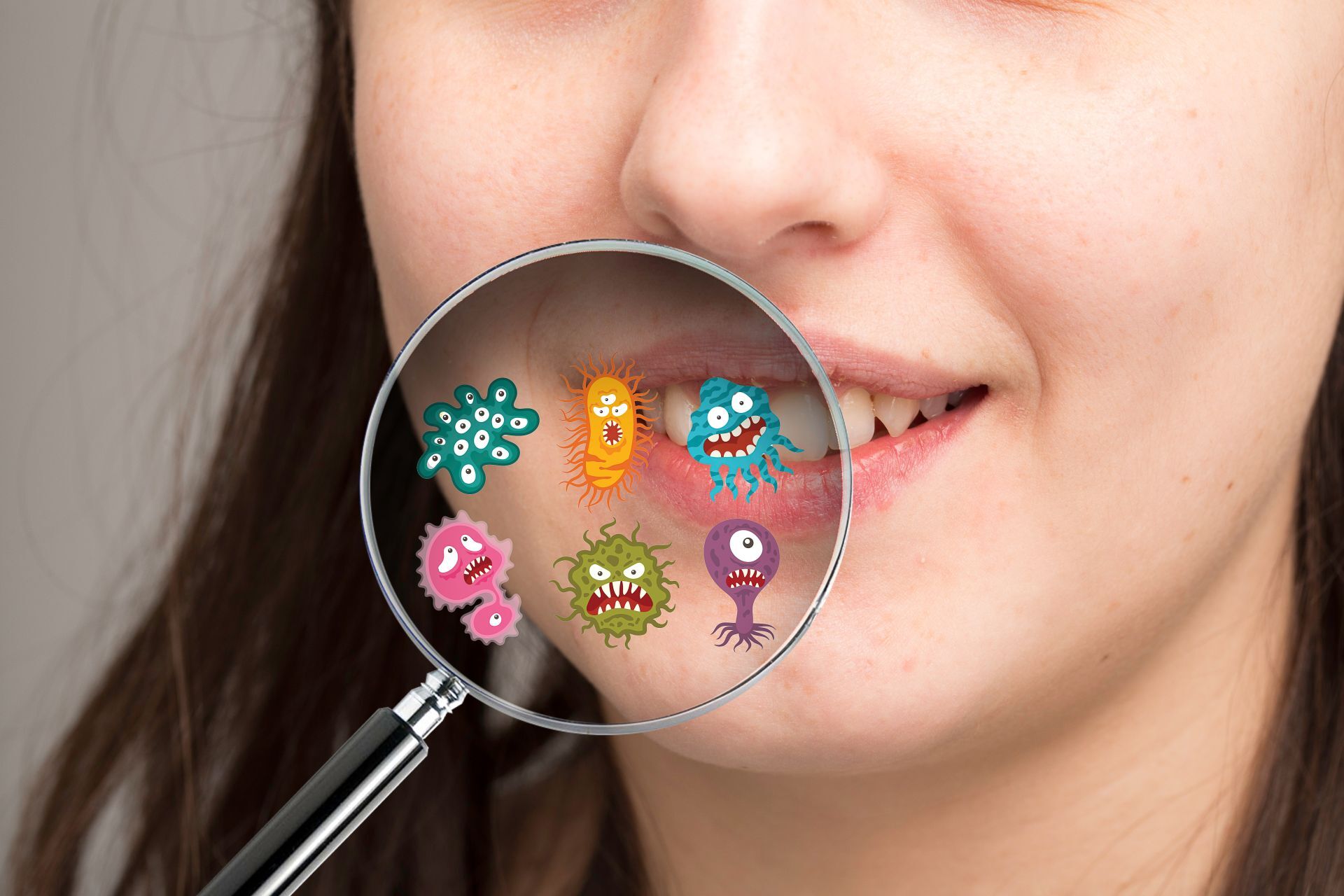
First and foremost, professional prophylaxis offers major advantages. In addition to protection against tooth decay and periodontal disease (an inflammation of the entire periodontium, with receding gums and the degradation of the jawbone up to tooth loss), it also leads to the mineralisation and smoothing of the teeth and contributes to a healthy oral flora. After PTC, the teeth look radiant, brighter and smoother again, and people with braces and dentures in particular should book an appointment for a prophylactic treatment at least twice a year, since bridges and crowns will last significantly longer if they are professionally cleaned and checked. Negligence can allow bacteria to build up again in the small gaps and, in a worst-case scenario, to penetrate the teeth.
In addition, it is possible to seal tooth necks that are sensitive to pain, so that cold and hot foods no longer trigger unpleasant pain reactions. The importance of eliminating harmful microorganisms during professional tooth cleaning is also recognised for people with chronic diseases, for whom gingivitis can be particularly dangerous. Prophylaxis is very important for them since oral bacteria can get into the bloodstream and the body via the gums. This is also the reason why patients who are at risk must be given an antibiotic prior to any treatment to prevent infection. Because under certain circumstances, prophylactic treatments can lead to small injuries (microscopic tears) in the gums. Bacteria released when gingival pockets are cleaned, for example, could get into the bloodstream, which can be very dangerous for predisposed patients. For all other patients, rinsing with a disinfectant solution is sufficient. One of the best known is Chlorhexamed, but essential oils from natural medicine such as tea tree oil also have an antibacterial effect and prevent inflammation caused by germs in the mouth.
Pain during professional tooth cleaning?
As a rule, professional tooth cleaning is virtually painless. Depending on how stained the teeth are, the removal of tartar and plaque from the edges of the gums can be somewhat uncomfortable. If in doubt (ask your dentist), topical anaesthesia can provide relief. A gel is applied for this purpose. Here too, the following applies: good prophylaxis at home means that less tartar and plaque will form – and their removal then causes less pain.
